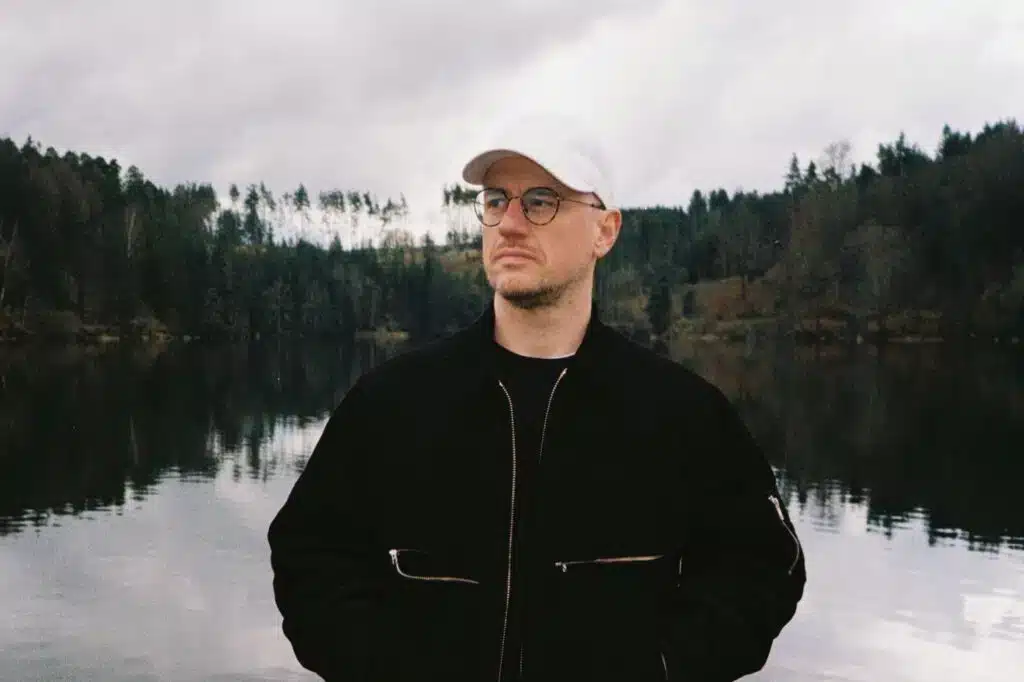
Zanshin‘s music has always been on the dense side: the last thing one would have expected from him is a full-on detour into ambient music – but that’s what Ok Ocean (out now on Affine Records) turned out to be. The bombast has been muted; the rough edges smoothed out: it’s a record to stretch your arms and legs out and float to. Christoph Benkeser recently spoke to the artist about the rapture – and terror – of the deep.
90 minutes of ambient music – sure, why not?
Zanshin: On cassette, it’s no problem! The running time is also a protest against the general trend – only two-minute songs land on Spotify, so I’m doing the opposite.
Didn’t Billie Eilish mention that recently? That people’s attention spans haven’t actually gotten shorter…
Zanshin: If the content is good enough, they’ll listen to the whole thing. So, it’s more of a quality deficit than an attention deficit. Also, certain kinds of music require a certain length. You have to allow yourself the time to get into it.
“The more you listen, the more you hear”
Deep listening to your music is also really enjoyable.
Zanshin: I dared to let it be beautiful, without adding a disruptive factor. In comparison to my other work, I didn’t do all that much – but generally speaking, it’s still a lot. I noticed it when we were mastering the album: a lot of things happen simultaneously. Which is actually rewarding, because the more you listen to it, the more you hear. That has an advantage over shorter, instant-gratification music. Even if you put it on random and let it play in the background for six hours, you still kind of dive into it.
“Diving” is a key word.
Zanshin: I’ve only ever been snorkeling. It has different aspects – a benevolent love of the ocean, and a respect that borders on fear.
You stand on the cliff, gazing into the distance, and a voice next to you says: “I feel so small”.
Zanshin: Romantic glorification! But also immediate fascination. My friends who have been diving always say that everything is totally different down there. I tried to imagine how it sounds when you dive, when you see the light shimmering on the surface above you and the schools of fish swimming by.
I went diving recently. The greatest thing about it is, for 45 minutes, you have nothing but white noise and yourself. Everything else is…turned off.
Zanshin: It’s too bad you can’t use my music underwater.
Like in those spas with the New Age music playing underwater?
Zanshin: Dude, yes! It would probably appeal to a lot of people there. The “ocean” concept is pretty approachable, right? In any case, I have to see the ocean once a year for my mental health. But then there’s all the plastic, all this stuff that we’ve caused floating around in the ocean, where we all come from…fucking hell!

“Only Europeans go there to swim”
Still, when we think of the ocean, we think of…
Zanshin: Vacation. But you notice the conflict. I was in Bali, and the people there really have a healthy respect for the ocean. Evil has always come from it, whether invaders or natural disasters. Only Europeans go there to swim. So I asked myself how I could deal with that dilemma on an ambient album, without slapping a shallow “save the ocean” slogan on it. Just addressing this set of issues at least gets people thinking about it.
About the ocean?
Zanshin: Not only that. In trauma therapy, for instance, they work with guided stimulation, including visual stimulation. Apparently, vertical eye movements tend to be stress-inducing, while horizontal movements have a calming effect. Even at the Donauinsel, I notice it: as soon as I can see more of the horizon, I feel calmer. And on the coast, it’s obvious – you sit on the beach and gaze into the distance. Everyone feels it differently, but it’s calming.
Like the album.
Zanshin: Exactly. The story the album tells can be different for everyone. Like with the ocean – something is always happening; it’s always in motion. Not just the brief, shimmering reflections on the surface, but the huge, slow-moving depths as well. I tried to capture that invisible simultaneity in the tracks. When I look at the sky, I see everything. With the ocean, it goes down; it gets dark. I always have to think of Lovecraft’s Cthulhu.
So the immensity also provokes fear?
Zanshin: The boundlessness. But people who dive say that when you become part of the ocean, you feel more connected. We often use the sea as a synonym for the unconscious – something deep and hidden that you have no access to. If you make peace with that depth – connect with it – you lose the fear.
Because you have no choice. If you try to fight it…
Zanshin: You panic. And that’s bad, especially when you’re diving. This idea of being forced not to panic is interesting, because there are a lot of fears in our society that lead to stress, and a lot of people aren’t aware of them – and so they can’t deal with them. Underwater, you have no choice.
Because there’s a lot of pressure there…but not the social kind.
Zanshin: Exactly. You’re free, in a sense, to the extent that you accept it – stay in the moment, see and hear. For me, that’s the connection to the album. The music is in an impressionistic tradition; it’s about the internal sensations.
“The bass stands for the violence that the ocean can unleash”
A lot of ambient music sounds like elevator music – all the same. Ok Ocean is different.
Zanshin: It’s because I’ve spent a lot of time producing club music. I know how important the subbass is. And it stands for the violence the ocean can unleash. My ambient music is heavy; it has to push.
Good description. Most ambient music is meant to be uplifting, but yours pushes down.
Zanshin: That immensity has darkness and melancholy in it, of course. But I often find beauty in that, partially because it allows me to show my own vulnerability.
It wasn’t always that way. What made you able to accept that beauty?
Zanshin: I used to sabotage myself sometimes – disruptive, aggressive elements were always important to me. I can only speculate on why I’m OK with more accessibility now. Maybe that harmony already existed in the DNA of the song sketches. Maybe I’ve just become more balanced.
Interview by Christoph Benkeser, translated and adapted from the German original by Philip Yaeger.
